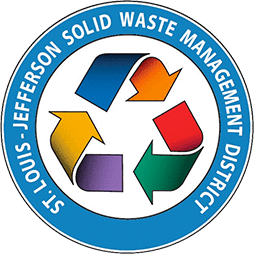You may be thinking, “I love to recycle, but I have never heard of ‘precycling’.” Precycling takes your recycling game to the next level!
Simply stated, precycling is when you consider the recyclability of a product before purchasing. There are a lot of products out there that are packaged in non-recyclable materials. By considering the packaging of a material before purchasing it, you are reducing your waste before making waste!

Reusable bags and our grocery list!
We are going to show you a step-by-step demonstration of precycling in action at the grocery store. One of my family’s favorite meal is chicken enchiladas. Come along on this precycling adventure to see how much waste we are able to prevent from going to the landfill before even purchasing items!
First things first: Make a list and stick to it! This helps keep down the cost and also prevents making impulse purchases. Impulse purchases can create a lot of extra waste because they are usually packaged in non-recyclable materials and create unnecessary food waste.
Second: Bring your reusable bags! Put your bags by the door or keep them in your car in case of last minute shopping trips.

Yay! So far nearly no waste generated minus the twist ties and produce stickers.
Third: Now to the grocery store! Produce is often the first stop in most grocery stores. This is usually the area in the grocery store with the least amount of packaging, so take advantage of accumulating little waste here. Avoid any extra plastic produce bags or produce pre-packaged in plastic bags or mesh bags. Some people have cloth produce bags to put their produce in. If you don’t have cloth produce bags, consider not using plastic produce bags for produce that has a thick inedible skin or peel (e.g. lemons, bananas, pineapples) to reduce some of your plastic bag usage.

Soft, stretchy plastic can be recycled at the grocery store along with your plastic bags.
Look, we have picked out all our produce and didn’t use ANY plastic produce bags! I made some substitutes such as opting for avocados instead of pre-made guacamole, buying lettuce loose instead of pre-shredded lettuce in a plastic bag and buying tomatoes loose to dice up instead of packaged cherry tomatoes.

While this packaging is recyclable, we opted to buy tomatoes loose to dice them up.

This plastic bag of pre-shredded lettuce is not recyclable in your Blue Bin or at the grocery store.

Instead of buying pre-made guacamole, we decided to make our own. The cardboard would have been recyclable, but not the plastic packaging inside.
Next, on to the dairy and meat departments. These areas carry a lot of produce packaged in non-recyclable materials such as Styrofoam or hard plastic bags. We did not find a cheese option in recyclable packaging, so we choose the option with the least amount of plastic used. See picture below. Meat also can be difficult to find an option that is completely recyclable, so choose the best low-waste option. Styrofoam is not recyclable, so I choose the chicken packaged in a plastic tray container which is recyclable.

While this packaging is not recyclable, it uses the least amount of packaging.

This pre-shredded cheese bag is not recyclable and uses a lot more plastic.

This tray is styrofoam and cannot be recycled.

Wash out the container to prevent foodborne illnesses before recycling.
Enchiladas would be incomplete without tortillas! Nearly all bread comes in soft, stretchy plastic film. This is not recyclable in your Blue Bin, but can be taken back to the grocery store with your plastic bags. Click here for other plastic film you can recycle at your local grocery store.

Take this soft, stretchy plastic back to the grocery store to recycle once empty!

Buy larger cans to save on packaging. Don’t create food waste!
Moving on to the canned food aisle! This is one of the easiest items to always recycle in your Blue Bin. I picked up quite a few items in this section–enchilada sauce, salsa and refried beans! Once emptied, just give them a quick rinse before recycling. Usually for canned food we purchase larger cans, instead of buying two cans. Purchasing the larger container uses less materials and saves on cost!
Whenever possible, we look to support companies that make or grow local food.

Local food travels less miles and supports our local economy!
Did you know our food travels an average of 1,500 miles! That would be like driving to the grocery store in Phoenix, Arizona just to make enchiladas!

Reuse/Recycle clean aluminum foil.
I needed aluminum foil to cover the enchiladas. It can be recycled as long as food is wiped off! I also picked up some spray oil to coat my casserole dish. Empty spray cans are also recyclable in your Blue Bin, too!
This meal would be incomplete without spices. There were several options to choose from including pre-made spice mixes in paper bags. I realized if I purchase the spices individually, not only could I recycle the containers, but I would be able to use the spices separately for other meals, too!

Our shopping cart currently.

Pre-made usually it costs more and not recyclable. Take the extra time to make your own mixes.
The last minute items we needed to pick up were sour cream, queso cheese and chips to complete our meal! Neither of us tend to use a lot of sour cream, so we chose a smaller container to minimize food waste. Did you know food waste makes up around one-third of what we throw away? Choose appropriate food and container size to limit food waste!

We purchased a smaller tub of sour cream to make sure we used it all and not create food waste.
In our household we save our food scraps to put in our compost pile or freeze until we are ready to make a vegetable broth. It is just one more way to reduce our waste going to the landfill.
After cooking, the waste I ended up with was: Chip bag, produce sticker, twist tie around the lettuce and cilantro, cheese plastic wrapper, plastic seal from the chicken package, plastic seals on the spices and sour cream. While the plastic wrap tortillas are not recyclable in our Blue Bin, we will take this back to the grocery store to recycle there with any other clean, stretchy plastic.
Making a few, small changes can have a BIG IMPACT! By taking a few extra steps, you can reduce your waste from the beginning!

Our cart at the end of our shopping trip!










4 Trackbacks